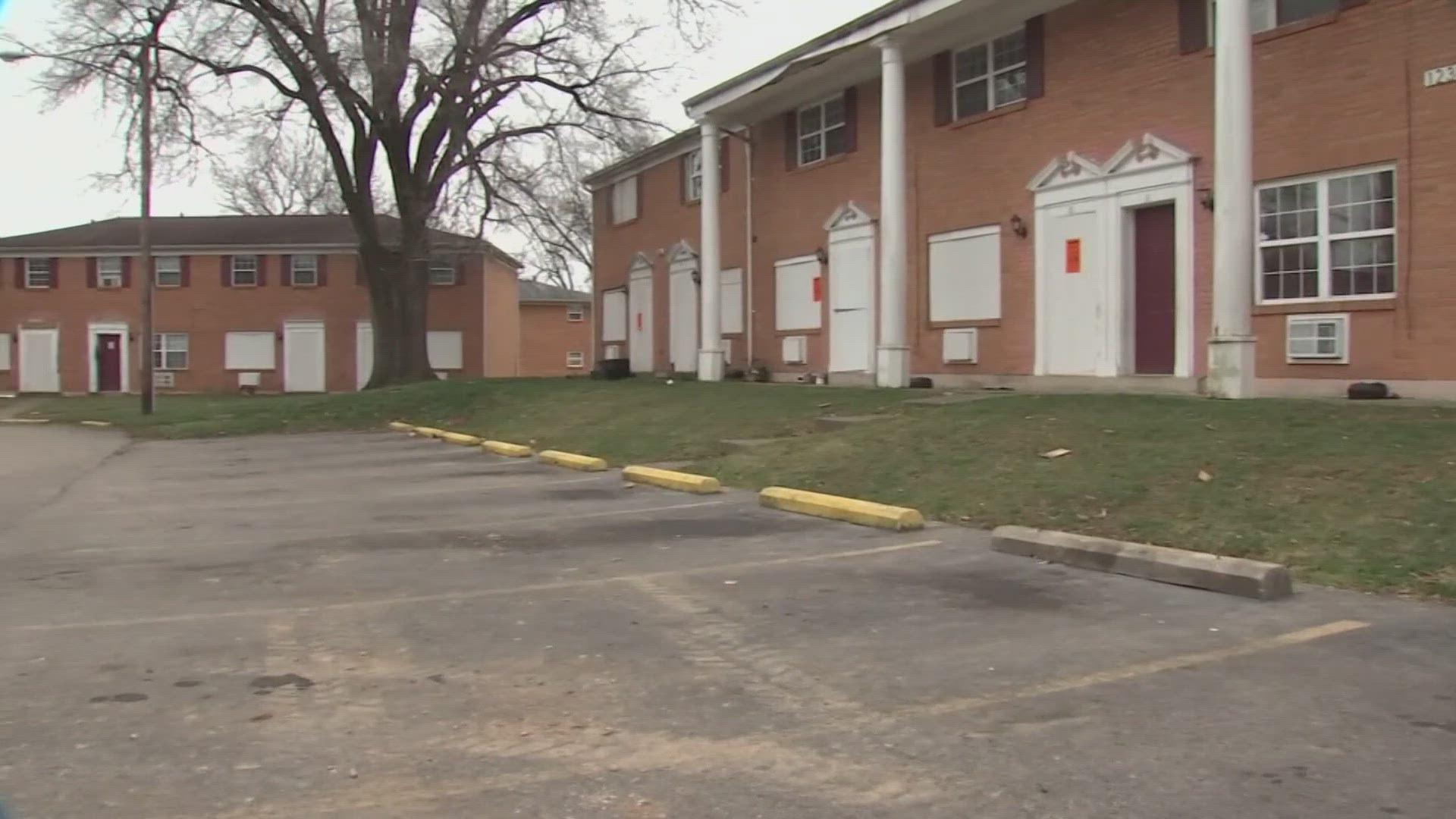COLUMBUS, Ohio — The city of Columbus has set a June 28 deadline for former residents of Colonial Village to find permanent housing.
More than 300 households are still staying in eight hotels after they were forced to leave Colonial Village in November and December.
The apartment complex was shut down by the city, which deemed it unsafe to live in.
Starting June 28, they will have to start paying the hotel bills themselves or find somewhere else to go.
Once the final pieces of legislation pass in June, the city will have spent $6 million on the former residents' temporary housing expenses.
The original plan for the city was to provide temporary housing through March, but the program has been extended three times.
A spokesperson for the city said it’s not possible to maintain this level of support indefinitely.
The city has also spent $300,000 for relocation services, $281,000 for immigration, work permit, legal services and case management and $240,000 in emergency rental assistance. The city has also been giving residents daily COTA passes.
“I never asked for none of this,” said former resident Sunshine Thacker.
She has been staying at hotels since leaving Colonial Village around Christmas and is desperate for some stability.
“I just wish I could get somewhere stable cause this isn’t stable. You can’t work eight hours a day and then come home and not come home because number one it’s not home,” Thacker said.
Like many former residents of Colonial Village, Thacker is having trouble finding a permanent home.
“It is very alarming. It is an awful situation and underscores the vulnerability of our community with these apartment complexes that are deteriorating really puts a lot of strain on our entire community. It is an awful situation for these households that have been impacted really through no fault of their own they have been victimized in a number of ways and many of them do face homelessness,” said Sara Loken with the Community Shelter Board.
The Community Shelter Board is working with each resident to identify their options for a new place to live, including doubling up with another household or moving in with family or friends.
Another factor complicating this process is the fact that many former residents of Colonial Village were asylum seekers or have immigration status.
“There are a lot of exacerbating issues that are creating barriers. Many of the households have victims of human trafficking, many are asylum seekers who are unable to work without risking asylum status and so that is clearly a problem. Even those who are working have poor credit history which makes them not terribly attractive tenants to prospective landlords,” Loken said.
But come June 28, residents like Thacker don’t know what they will do.
“I don't know, live in my car? That's not fair,” she said

